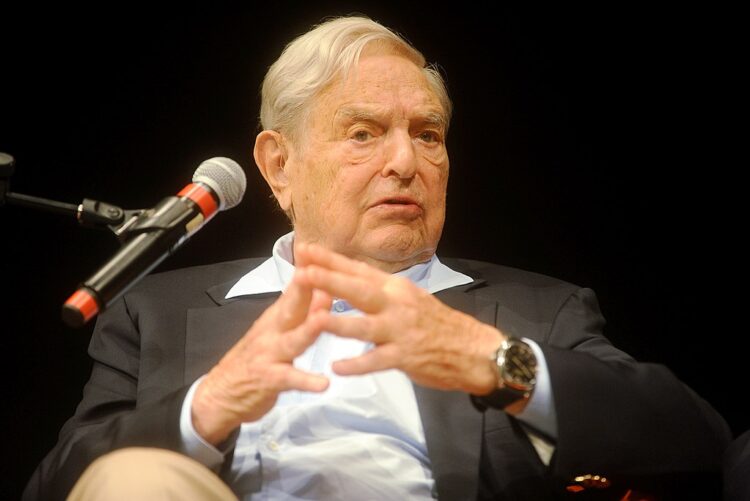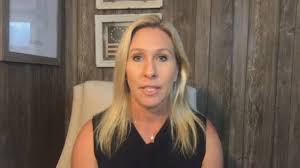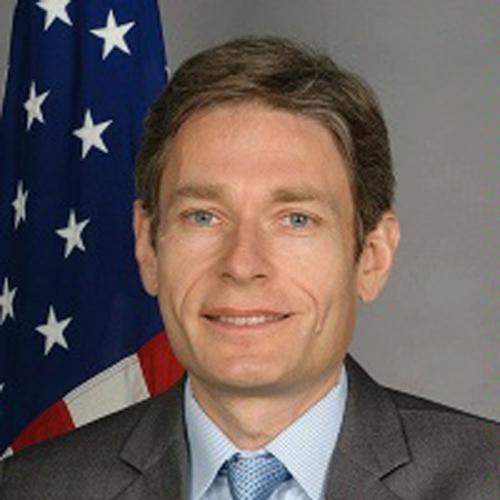During his second and final televised debate with Joe Biden last month, President Donald Trump claimed to be ignorant about QAnon, an unfounded American conspiracy theory that fosters racial and religious prejudice and poses a potential terrorist threat, according to the Federal Bureau of Investigation.
“I hate to say that I know nothing about it,” he told moderator Savannah Guthrie, declining to denounce it. “I do know they are pretty much against pedophilia.”
But at a White House press conference in August, Trump seemed aware of QAnon. “I’ve heard these are people that love our country,” he said. “So I don’t know really anything about it other than they do supposedly like me.”
QAnon, which has coalesced into an amorphous pro-Trump movement since its emergence in 2017, has spread widely on the internet.
Having been endorsed by several Republican Party candidates for Congress and Trump’s former national security advisor, Michael Flynn, it has influenced conservative American voters who buy into outlandish conspiracy theories.

As one observer recently noted, the conspiracy theory is as quintessentially American as apple pie. In his classic work, The Paranoid Style in American Politics, the historian Richard Hofstadter wrote that suspiciousness and conspiratorial fantasy have been unsettling features of politics in the United States since the 19th century.
QAnon, which feeds on ignorance and prejudice, emerged when an anonymous person under the name of “Q Clearance Patriot,” or “Q,” posted a series of cryptic/toxic messages on 4chan and 8chan, both sites of which are frequented by, among others, the alt-right — white supremacists, neo-Nazis and white nationalists.
Q claimed to be in possession of classified information about a secret battle Trump and his allies are waging against a satanic cabal of global pedophiles and bureaucrats in the U.S. government who engage in sex trafficking and seek world domination. These individuals are members of the so-called “deep state,” which is supposedly responsible for the problems that afflict the United States.

To QAnon acolytes, the shadowy “puppet masters” who pull the strings are primarily the Rothschild family of bankers, George Soros, the left-of center Hungarian-born, Jewish American financier and philanthropist who funds liberal projects, and the House of Saudi, which rules Saudi Arabia.
They are aided and abetted by Democrats ranging from Bill and Hillary Clinton, the ultimate American power couple, to Barack Obama, Trump’s predecessor in the White House.
Marjorie Taylor Greene, a businesswoman from the suburbs of Atlanta, Georgia, who’s expected to win a seat in the House of Representatives come November 3, has been one of its ardent promoters. Trump has praised her as “a future Republican star.”

Three years ago, she uploaded a 30-minute video on Facebook outlining the elements of QAnon, which hails Trump as a national hero. “Q is a patriot, we know that for sure,” she said in her video. “There’s a once-in-a-lifetime opportunity to take this global cabal of Satan-worshiping pedophiles out, and I think we have the president to do it.”
By most standards, Greene could be described as an extremist. She has argued that Muslims should not serve in government, has compared Black Lives Matter activists to the Ku Klux Klan, and has claimed that white males are “the most mistreated group of people in the United States today.”
And she has said that “Zionist supremacists” are planning to flood Europe with immigrants to reduce the white population of the continent.
QAnon theory, impregnated with paranoia, is old wine in a new bottle.
It’s an updated but crude version of the antisemitic trope that Jews seek to rule the world and collect the blood of non-Jewish children for ritual purposes.
QAnon believers, who have been linked to vandalism and violence, have produced social media videos to lure recruits, not only in the United States but also in some 70 countries.
In Berlin, far-right protesters inflamed by these documentaries recently attempted to storm the Bundestag, Germany’s parliament.

After the passage of a bipartisan U.S. congressional resolution condemning QAnon, co-introduced by Tom Malinowski, Facebook, Instagram and YouTube removed all its pages and accounts. Smaller social media platforms such as Etsy and Triller followed suit.
These removals will have adverse effects on QAnon in the short term, but in all probability its followers will find new outlets for self-expression.
